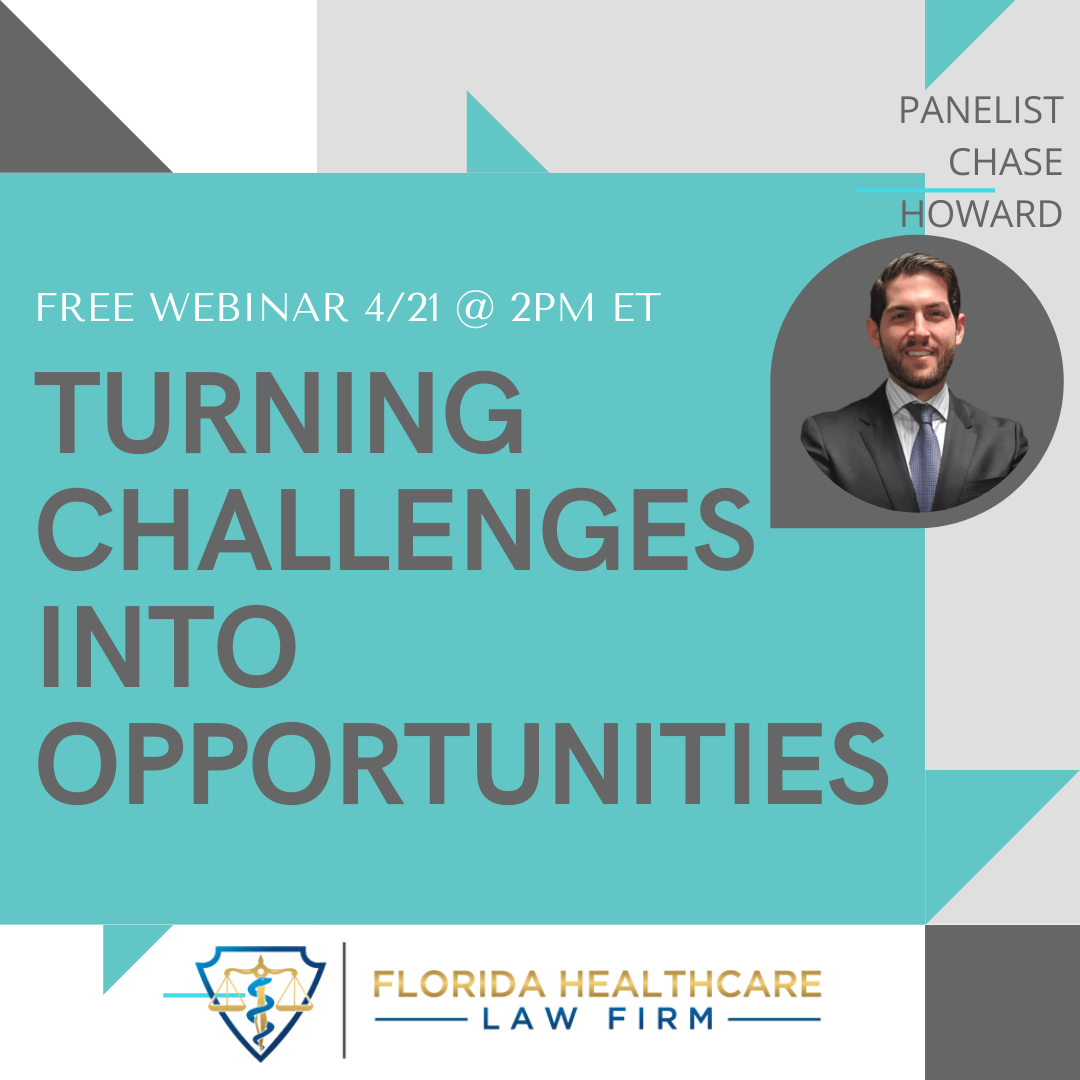 With governments locking down communities to combat the COVID-19 pandemic, health care providers and practitioners scrambled to find ways to deliver care to patients at their homes or residences. CMS relaxed restrictions on providing health care via telehealth, allowing for all Medicare patients to receive care via two-way, audio and video communications, and even via telephone calls notwithstanding that patients may not reside in rural zip codes. Hospitals pivoted to providing services to patients in their homes, again using telehealth modalities or by deploying practitioners to a patient’s home. Skilled nursing facilities also adopted strategies of keeping patients in their homes, deploying needed skilled caregivers to the patient. And while home health services may have hit a lull in the first couple months of the pandemic, services provided by home health agencies soon started to soar. Home health agencies started to become busier than ever, with many providers reporting overall growth due to demand to receive services at home instead of hospitals, skilled nursing facilities or nursing homes.Continue reading
With governments locking down communities to combat the COVID-19 pandemic, health care providers and practitioners scrambled to find ways to deliver care to patients at their homes or residences. CMS relaxed restrictions on providing health care via telehealth, allowing for all Medicare patients to receive care via two-way, audio and video communications, and even via telephone calls notwithstanding that patients may not reside in rural zip codes. Hospitals pivoted to providing services to patients in their homes, again using telehealth modalities or by deploying practitioners to a patient’s home. Skilled nursing facilities also adopted strategies of keeping patients in their homes, deploying needed skilled caregivers to the patient. And while home health services may have hit a lull in the first couple months of the pandemic, services provided by home health agencies soon started to soar. Home health agencies started to become busier than ever, with many providers reporting overall growth due to demand to receive services at home instead of hospitals, skilled nursing facilities or nursing homes.Continue reading
Webinar | Virtual Practice Workshop: Turning Challenges into Opportunities
 Hosted by Candela and Crystal Clear Digital Marketing, Florida Healthcare Law Firm attorney Chase Howard will be a panelist.
Hosted by Candela and Crystal Clear Digital Marketing, Florida Healthcare Law Firm attorney Chase Howard will be a panelist.Back by popular demand, join us for another Virtual Practice Workshop & uncover the growth opportunities you can capitalize on now, while also protecting your practice in today’s disruptive landscape.
AGENDA: 2:00 PM – 3:00 PM | EXPERT ROUNDTABLE Industry influencers share tools, resources & strategies for improving patient engagement, creating treatment demand & taking advantage of growth opportunities to meet the needs of today’s changing climate. Moderators: David Pataca, MSL, LSO, Executive Regional Director, Candela Medical Audrey Neff, Marketing Director, Crystal Clear Presenters: Chase Howard, Attorney, Florida Healthcare Law Firm Ilanit Samuels, Medical Director & PA-C, MCMS, Baumann Cosmetic Dermatology Dr. Tali Arviv, MD, Arviv Medical Aesthetics
3:00 PM – 4:00 PM | SALES & MARKETING STRATEGIES TO STAY RELEVANT DURING COVID-19 Presenter: Audrey Neff, Marketing Director, Crystal Clear
April 21 @ 2:00 pm – 4:00 pm
Free
- Download the webinar here.
- Past webinars – free downloads
A Few Nuances to the Paycheck Protection Program Established Pursuant to the CARES Act
 By: Susan St. John
By: Susan St. John
The Paycheck Protection Program under the CARES Act (the “Act”) allows a small business to apply for a low interest rate loan to sustain the business during the economic disruption caused by COVID-19. This program focuses on payroll costs as opposed to revenues of the small business. Allowable uses of the PPP loan funds include the following:
- Payroll costs;
- costs related to the continuation of group health care benefits during periods of paid sick, medical, or family leave, and insurance premiums;
- employee salaries, commissions, or similar compensating;
- payments of interest on any mortgage obligation (which shall not include any prepayment of or payment of principal on a mortgage obligation);
- rent (including rent under a lease agreement);
- utilities; and
- interest on any other debt obligations that were incurred before the covered period.
The Act defines payroll costs as follows:
- the sum of payments of any compensation with respect to employees that is a:
- salary, wage, commission, or similar compensation;
- payment of cash tip or equivalent;
- payment for vacation, parental, family, medical, or sick leave;
- allowance for dismissal or separation;
- payment required for the provision of group health care benefits, including insurance benefits;
- payment of any retirement benefit; or
- payment of State or local tax assessed on the compensation or employees; and
- the sum of payments of any compensation to or income of a sole proprietor or independent contractor that is a wage, commission, income, net earnings from self-employment, or similar compensation and that is in an amount that is not more than $100,000 in 1 year, as prorated for the covered period; and shall not include the compensation of an individual employee in excess of an annual salary of $100,000, as prorated for the covered period; taxes imposed or withheld under chapters 21, 22, or 24 of the Internal Revenue Code for the covered period; compensation for employees outside of the US; qualified sick leave wages for which credit is allowed under the Families First Coronavirus Response Act; or qualified family leave wages for which credit is allowed under the Families First Coronavirus Response Act.



